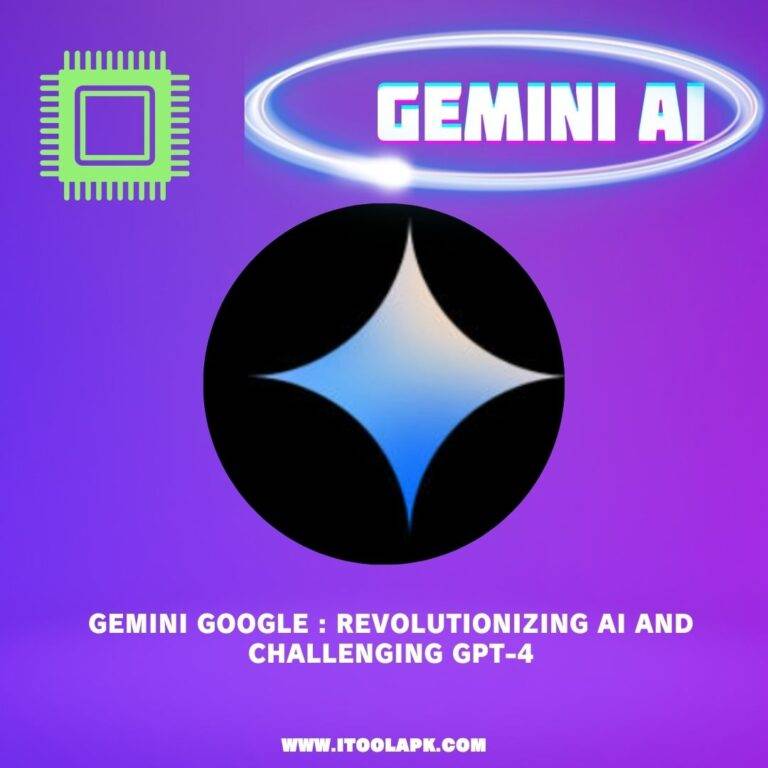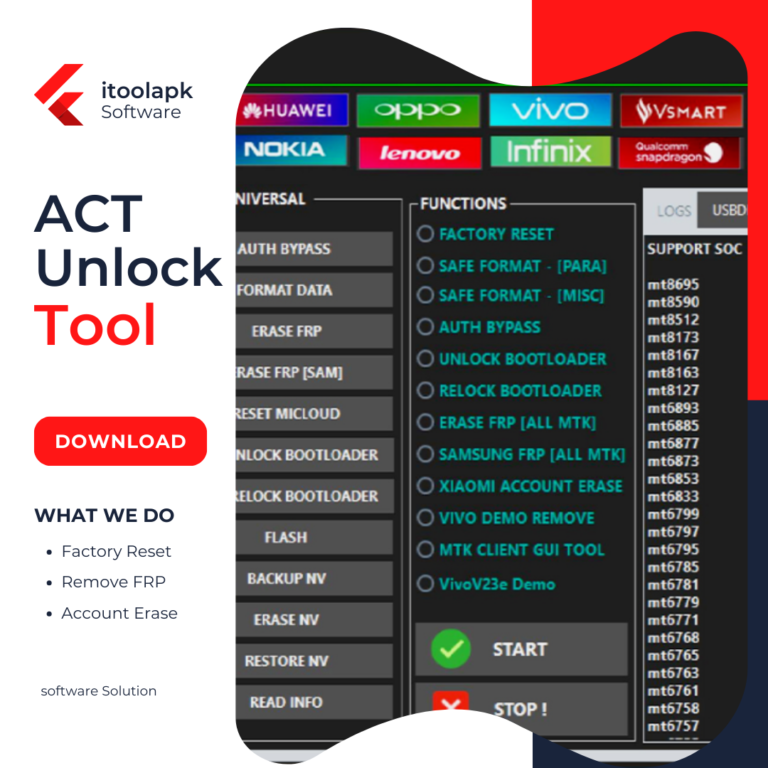Table of Contents
Gemini Google: Revolutionizing AI and Challenging GPT-4. Google has almost ten years of experience as a “AI-first company.” Now that ChatGPT has ushered in the AI era for a full year, it’s finally taking off.
Recently, Google, a leader in the field of artificial intelligence, unveiled a ground-breaking AI model called Gemini. This advancement represents a critical turning point in Google’s evolution into an AI-first business, a goal the company has been fostering for almost ten years. Google is about to take a giant step forward with the launch of Gemini, an initiative that CEO Sundar Pichai proudly links to the start of a new era at Google. This is because of ChatGPT and the AI era that has followed.
The Genesis of Gemini Google : Answer to AI Advancements
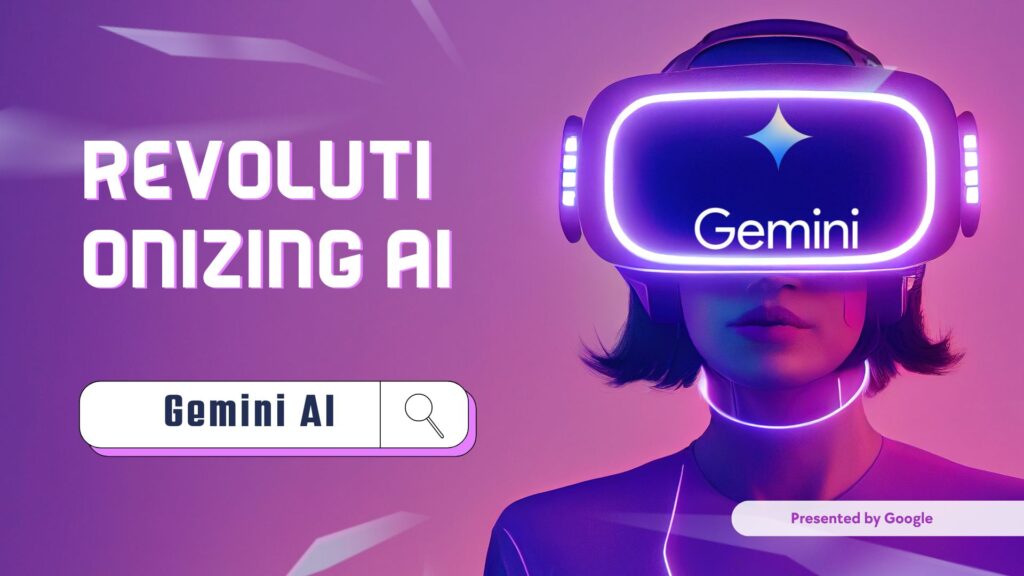
Pichai first hinted at Gemini during the I/O developer conference, and it’s now prepared for general release. It stands for Google’s bold attempt to improve the usability and functionality of its wide range of products by integrating AI technology. Pichai believes that Gemini’s development is essential because it makes it possible to enhance a single core technology that can be easily incorporated into a variety of Google products.
Gemini’s Multifaceted Architecture: Catering to Diverse Needs
Gemini is a flexible set of models designed for various applications, not just one AI model. This suite consists of Gemini Ultra, Google’s most powerful LLM (Large Language Model), which is primarily intended for data centres and enterprise applications; Gemini Pro, a more powerful version that will soon power many Google AI services and is the foundation of Bard; and Gemini Nano, a lighter version designed for offline use on Android devices.
Integrating Gemini Across Google’s Ecosystem
Google has a multifaceted launch plan for Gemini. Gemini Pro is now powering Bard, and Gemini Nano will soon be bringing new features to Pixel 8 Pro users. Additionally, Gemini Pro will be available to developers and business clients via Vertex AI in Google Cloud or Google Generative AI Studio. Although it is only available in English at the moment, plans are in place for multilingual support. It is anticipated that this integration will transform a number of Google products, including the Chrome browser, advertising, and search engine.
Gemini vs. GPT-4: A New Competitive Landscape in AI
All discussions about Gemini inevitably end up comparing it to OpenAI’s GPT-4. Google has carefully compared the two models and asserted significant advantages in the majority of domains, especially audio and video comprehension and interaction. Unlike OpenAI, which created distinct models for images and voice like DALL-E and Whisper, Google concentrated on building a multisensory model from the beginning, so these capabilities are by design.
Google claims that Gemini outperforms GPT-4 in 30 of the 32 benchmarks
Gemini’s primary advantage in those benchmarks—which are actually quite close to one another—lies in its capacity to comprehend and engage with audio and video. Multimodality has always been a part of the Gemini plan, so this is very much by design. Unlike OpenAI, which developed DALL-E and Whisper, Google developed a single multisensory model from the start rather than training separate models for speech and images. Hassabis states, “We’ve always been interested in very, very general systems.” His particular area of interest is combining all of those modes to get as much information as possible from as many sources and senses as possible, then provide equally varied answers.
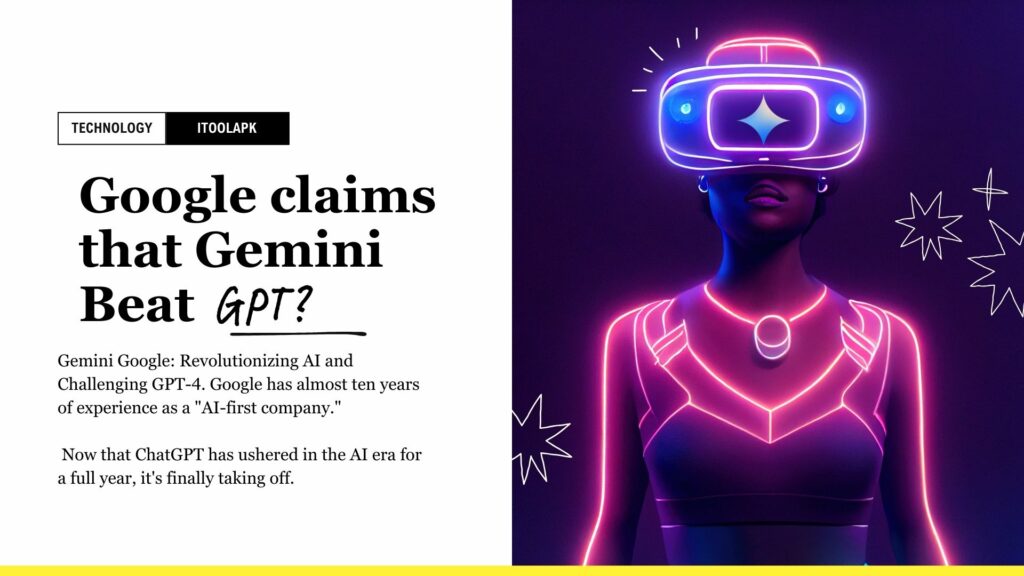
The most basic Gemini models available right now are text in and text out, but more capable models, such as Gemini Ultra, can also handle images, videos, and audio. Furthermore, Hassabis predicts that “it will get even more general than that.” “There are still elements that resemble robotics, such as touch and action.” He claims that as Gemini gains additional senses, awareness, accuracy, and grounding in the process, these qualities will come with time. “These models simply have a better understanding of the environment they live in.” Naturally, these models continue to exhibit biases and other issues, in addition to their hallucinations. But according to Hassabis, they will get better the more they know.
The Future of Gemini: Beyond Benchmarks
Although benchmarks give an indication of Gemini’s capabilities, its effectiveness and real-world applications will be the true test. Google sees Gemini as a game-changer, especially in coding. The code-generating system used by the model, AlphaCode 2, is new and is said to perform better than most code competition competitors. Google’s Tensor Processing Units further improve this efficiency, making Gemini more economical and quicker.
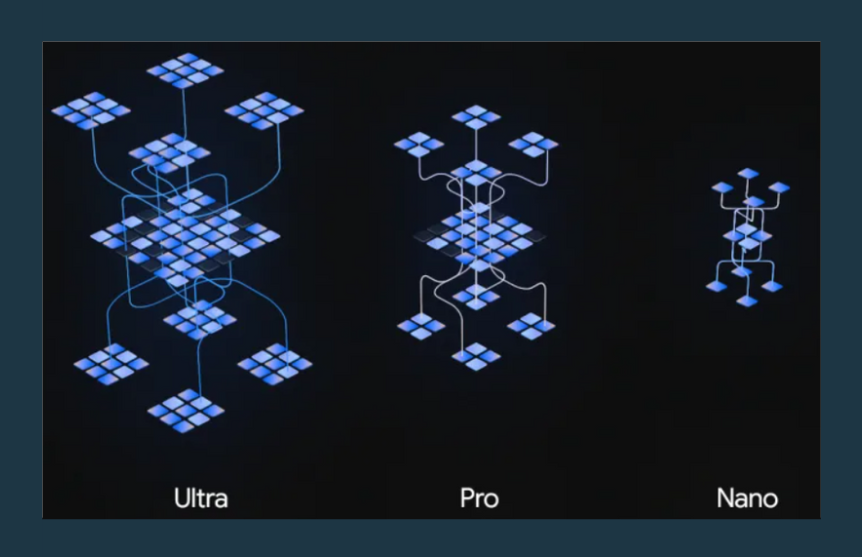
A Step Towards Responsible AI
As they strive for AI brilliance, Google is still devoted to responsibility and safety. This dedication is demonstrated by Gemini’s stringent internal and external testing procedures as well as its red-teaming strategy, which is crucial for enterprise-first products where data security and dependability are crucial. Google takes a cautious but hopeful stance in spite of the risks and unknowns associated with launching a cutting-edge AI system, especially with the delayed release of Gemini Ultra, guaranteeing a secure and managed introduction of this cutting-edge technology.
The Impact of Gemini: Shaping the Future of Google and AI
Gemini is more than just a sign of a new technology; it’s a representation of Google’s future vision, in which artificial intelligence (AI) will be just as revolutionary as fire or electricity. While Gemini may initially help Google catch up in the race for generative AI, its long-term potential is enormous and may even outpace the web’s influence on Google’s future.
Google admits a viral AI video was enhanced for visual appeal.
The public’s interest in Google’s Gemini AI has grown, especially after its demo video received over 1.6 million views on YouTube. This video generated a lot of interest and excitement because it demonstrated how the AI could react to spoken word prompts and visual stimuli in real time. But a closer look at the demonstration reveals a reality that is more complex.
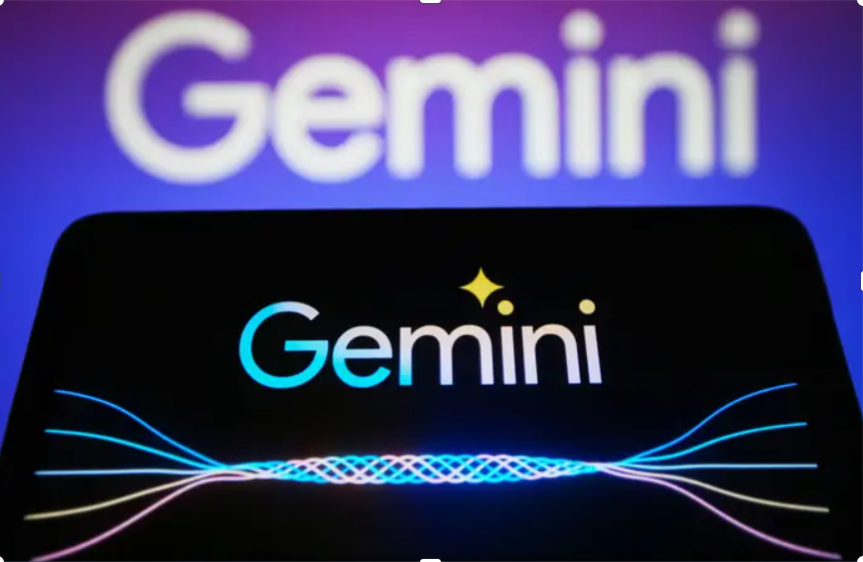
The Essence of Gemini’s Demonstration
At first glance, the Gemini demo seems to show an AI system reacting to voice and live video inputs. In the video, there are multiple scenes where the AI appears to interact with objects—like a rubber duck—and carry out activities like object identification and “guess the country” games.
The Rubber Duck Interaction
In the demonstration, a rubber duck plays a crucial role. After making a squeaking sound when the demonstrator squeezes the object, the AI—which was initially unsure of the material—identifies it correctly. This exchange implied a degree of responsiveness and real-time processing.
The Cups and Balls Routine
A highlight of the demonstration is the magic trick with the cups and balls. The AI appears to be able to follow a ball’s movement beneath cups, demonstrating its capacity to comprehend and process dynamic visual data.
What is Google AI Gemini?
Google’s most recent LLM, Gemini AI, is intended to be more potent and capable than its forerunner. Gemini is designed to reason across text, images, audio, video, and code with ease.
How to use Gemini AI?
To enable Aicore Persistent, navigate to Settings > Developer Options > AiCore Settings. When enabled, the suggestion strip on the Gboard keyboard should display Gemini Nano-powered Smart Reply suggestions.
Is Gemini better than ChatGPT?
Approximately thirty out of thirty academic benchmarks—including ten of the twelve popular text and reasoning benchmarks, nine of the nine image understanding benchmarks, six of the six video understanding benchmarks, and five of the five speech recognition and speech understanding benchmarks—show that the most potent version of Gemini AI beats ChatGPT.
What is the smartest AI Google?
The most intelligent AI assistant is Google Assistant. Second place goes to Microsoft’s Cortana, which is surprisingly good. Of all the assistants, Alexa is picking things up the fastest.
Is Bard using Gemini?
Bard currently only works with the text-based Gemini Pro version. Those who want to engage in multimedia may have to wait for later releases with a wider variety of features.
Why Gemini are so popular?
First of all, being an air sign, Geminis are inherently clever, witty, and fun. To make matters even more flexible and adaptive, they are also mutable signs. These two characteristics together account for their social butterfly tendencies. I have never met a Gem that I can’t get in touch with and invite to a party.

